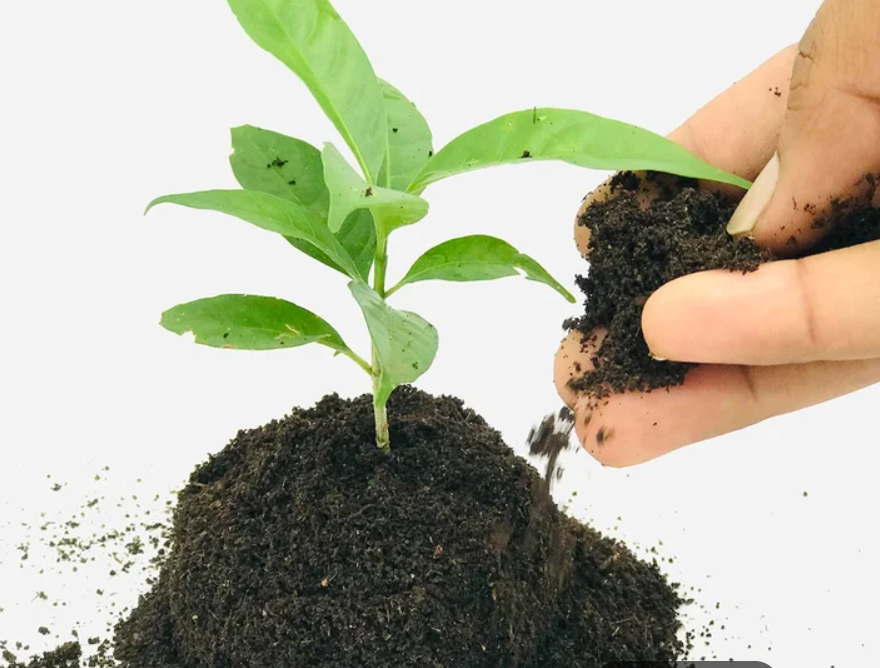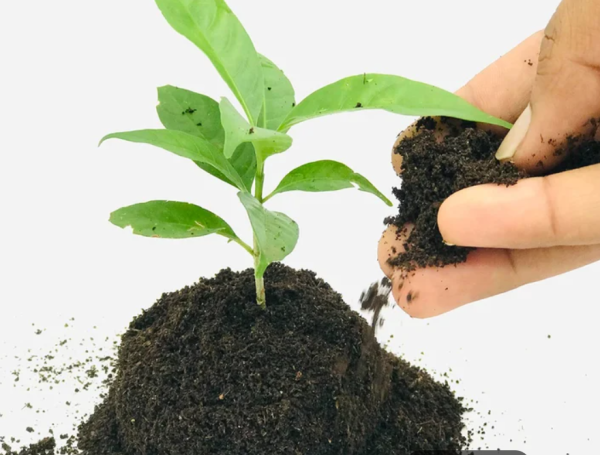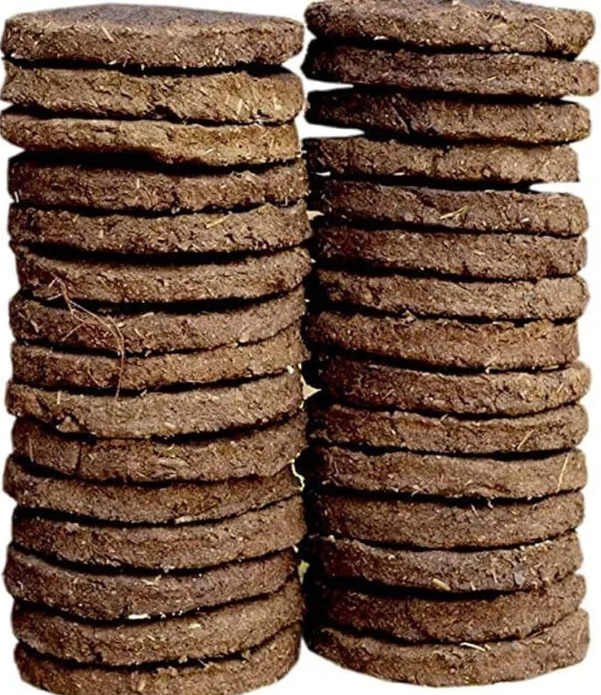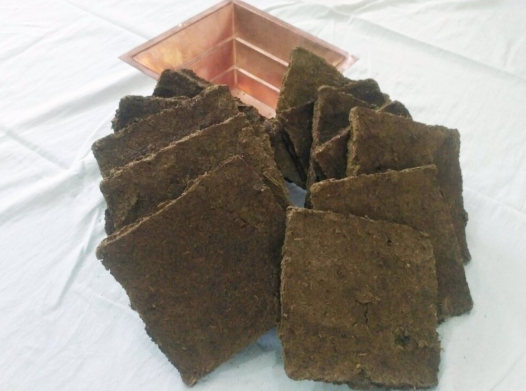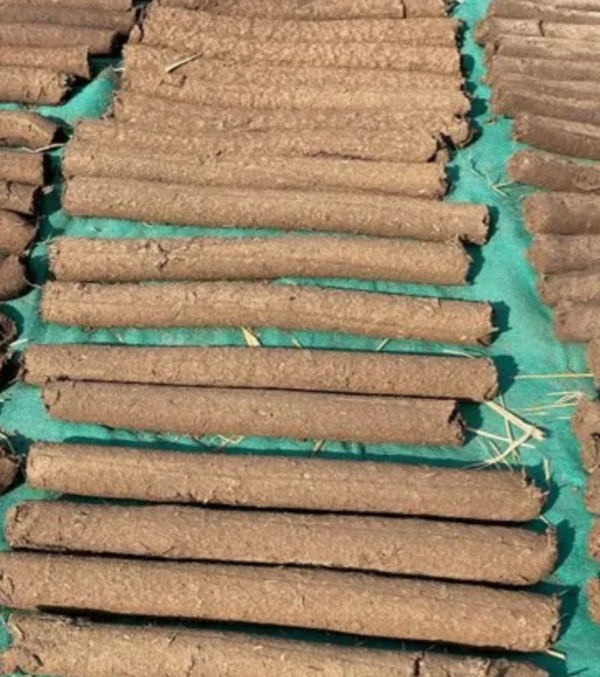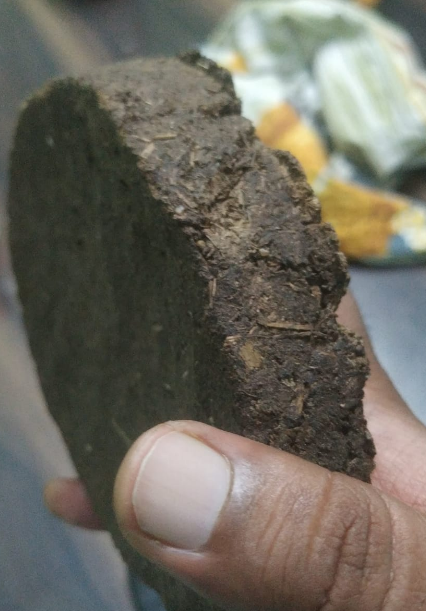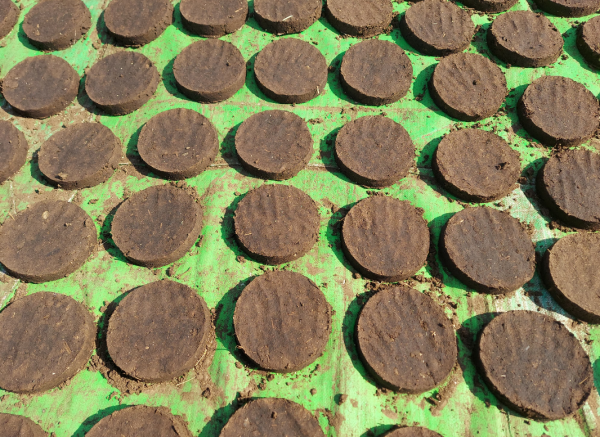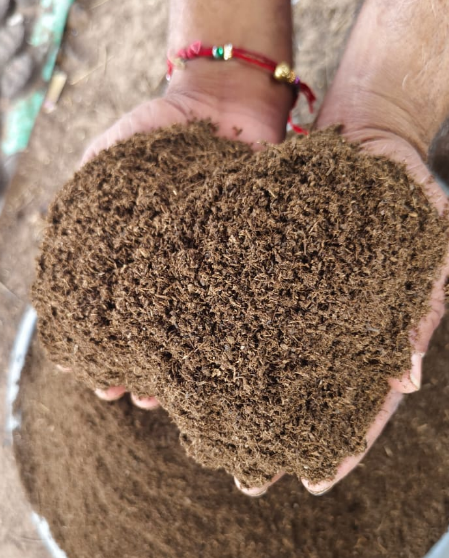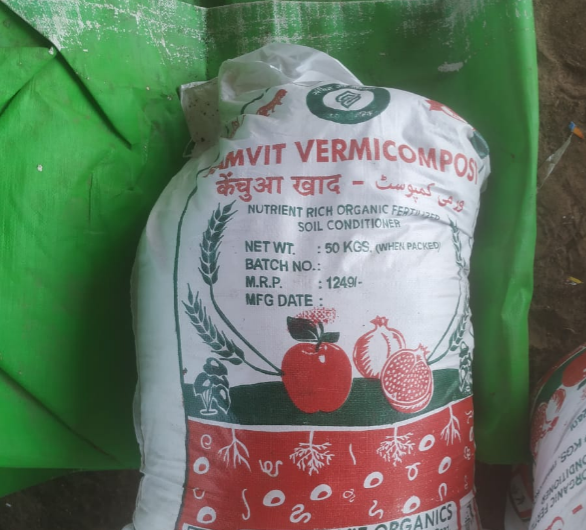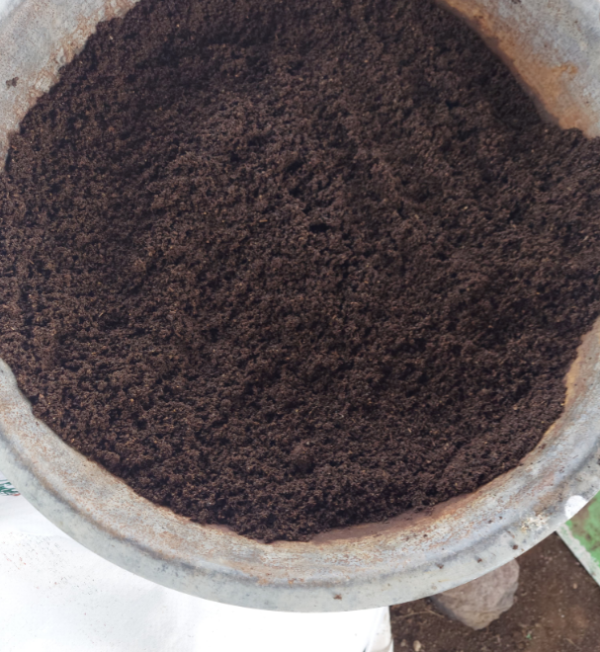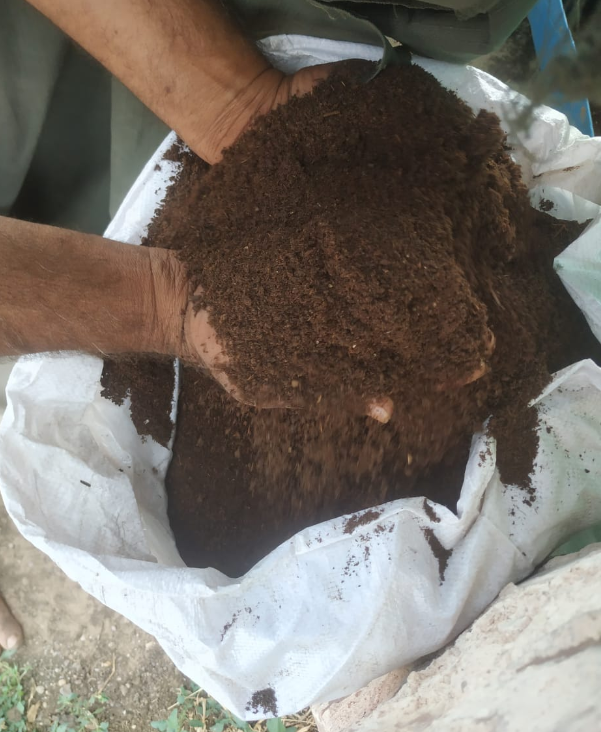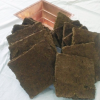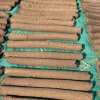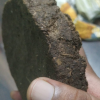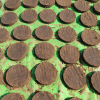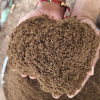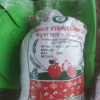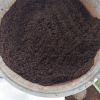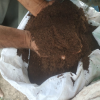Description
Cow dung can be used to promote the microbe activity in soil, improve the moisture content of the soil. It also has a rich content of necessary minerals like nitrogen, potassium etc.
Benefits of Cow Dung Manure for Crops
- Nutrient Supply to Plants
Cow dung contains essential nutrients like nitrogen (N), phosphorus (P), and potassium (K)- the primary nutrients required for crop growth. These nutrients are slowly released into the soil, making them available to plants over time. - Boosts Germination and Plant Growth
When used before sowing, cow dung enriches the soil and promotes better seed germination and stronger root development, which leads to healthier and more productive plants. - Increases Crop Yield
Regular use of cow dung improves overall soil fertility, which leads to higher and better-quality crop yields, especially in organic farming systems. - Acts as a Natural Growth Booster
It enhances microbial activity in the soil, which in turn improves nutrient uptake by crops and supports faster, healthier plant growth. - Improves Soil Moisture Retention
Cow dung helps retain soil moisture — especially useful for rainfed or drought-prone areas, reducing the need for frequent irrigation. - Reduces Dependency on Chemical Fertilizers
By enriching the soil naturally, cow dung reduces the need for synthetic fertilizers, which can harm long-term soil health and the environment. - Protects Crops from Certain Pests
Cow dung slurry or compost can sometimes deter insects and pests naturally, thus acting as a mild organic pesticide for crops. - Best for Organic Farming
It’s one of the most widely used manures in organic farming practices. It’s safe, eco-friendly, and boosts soil and crop health over time.
